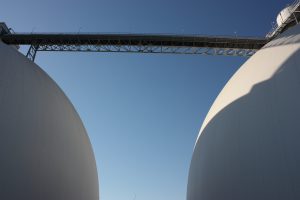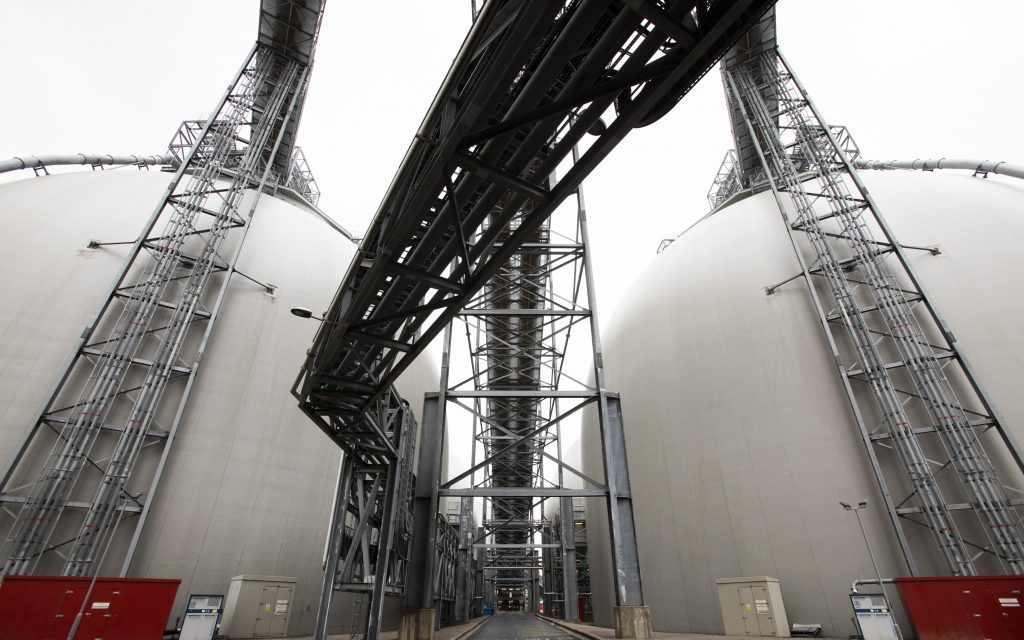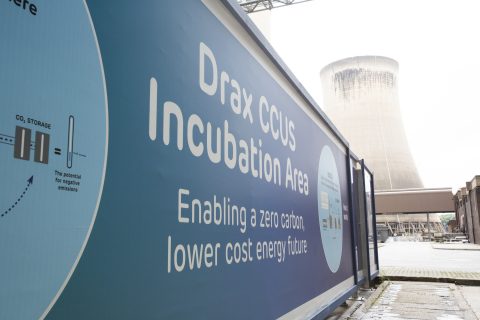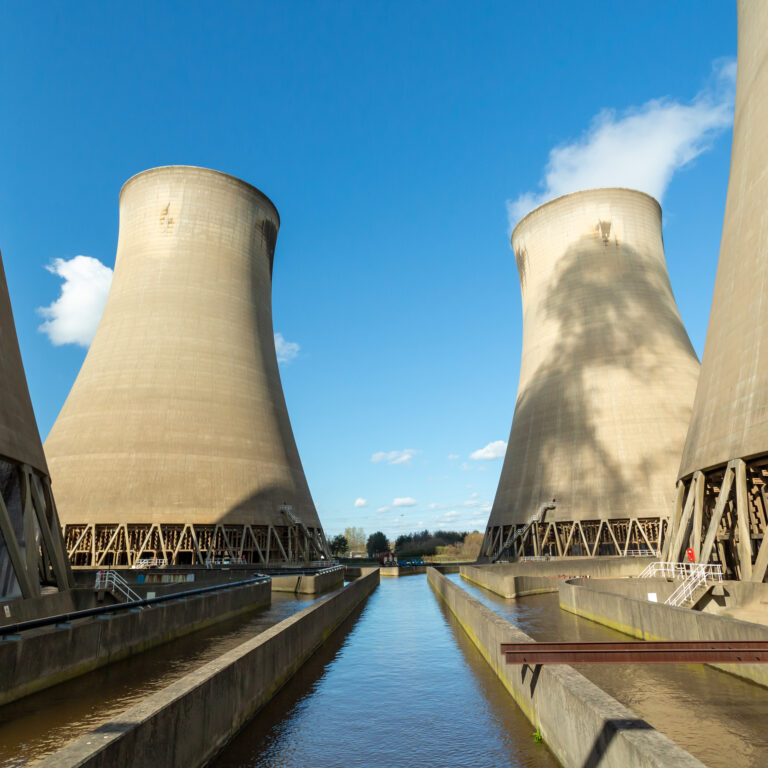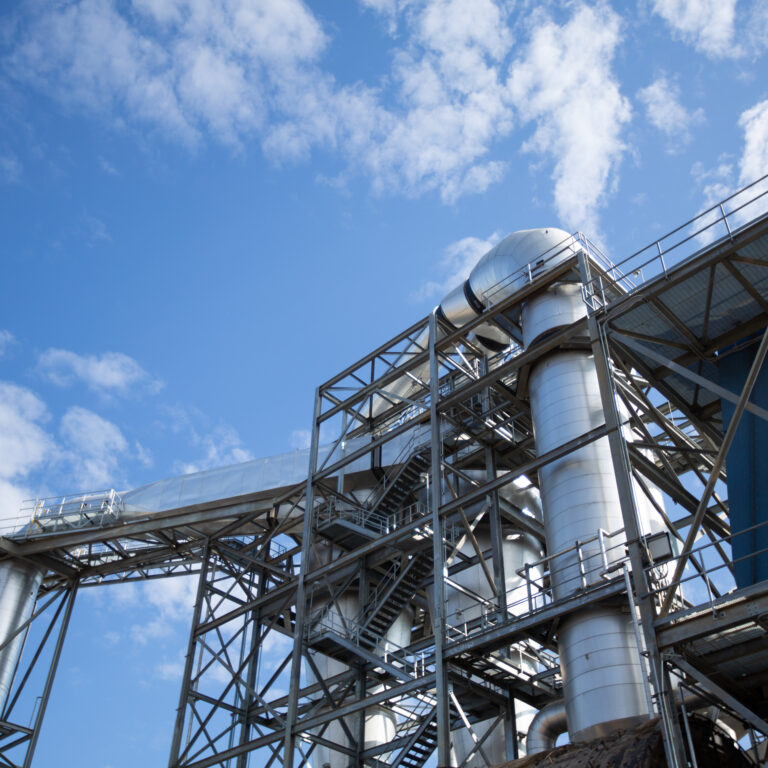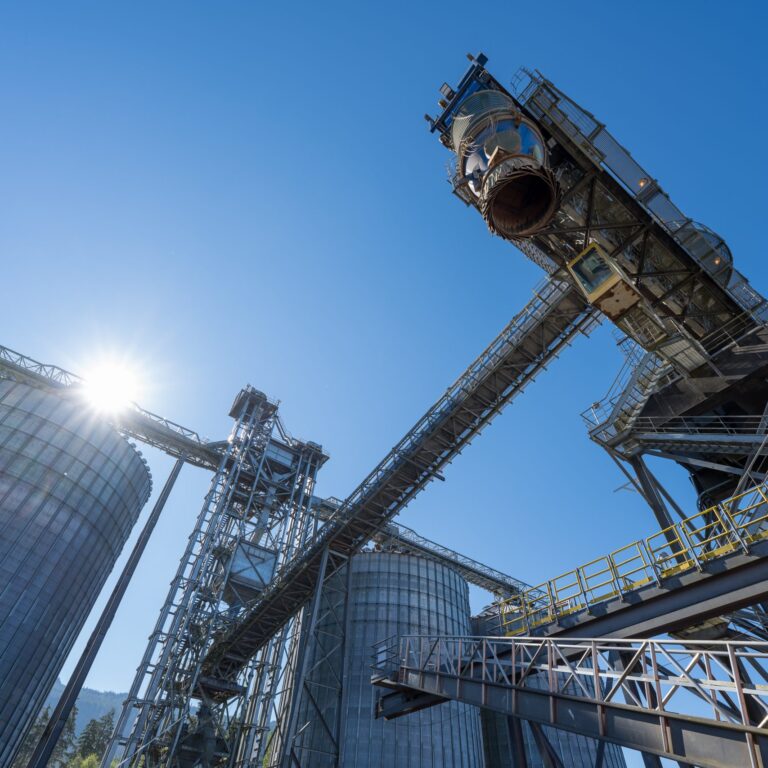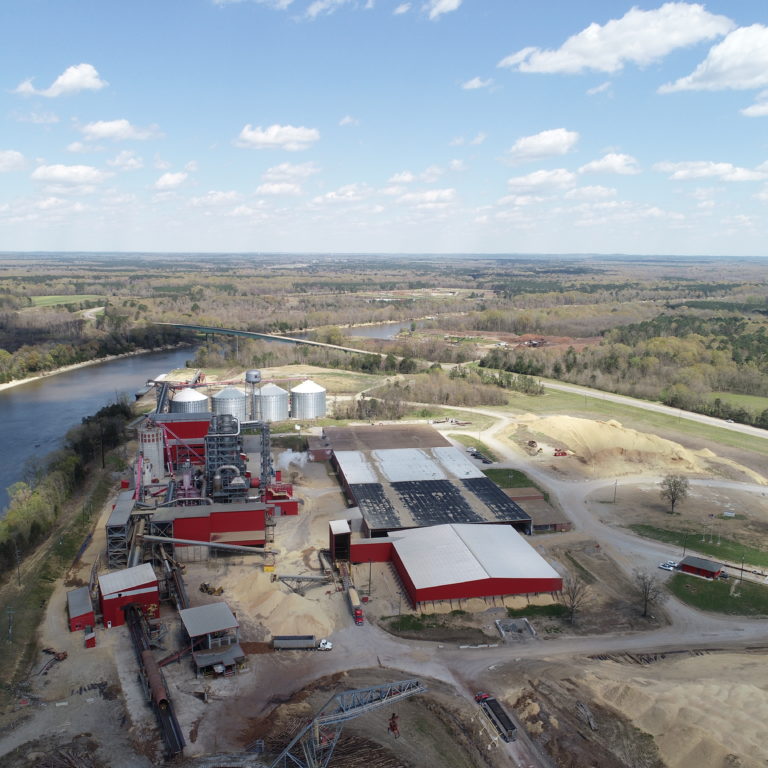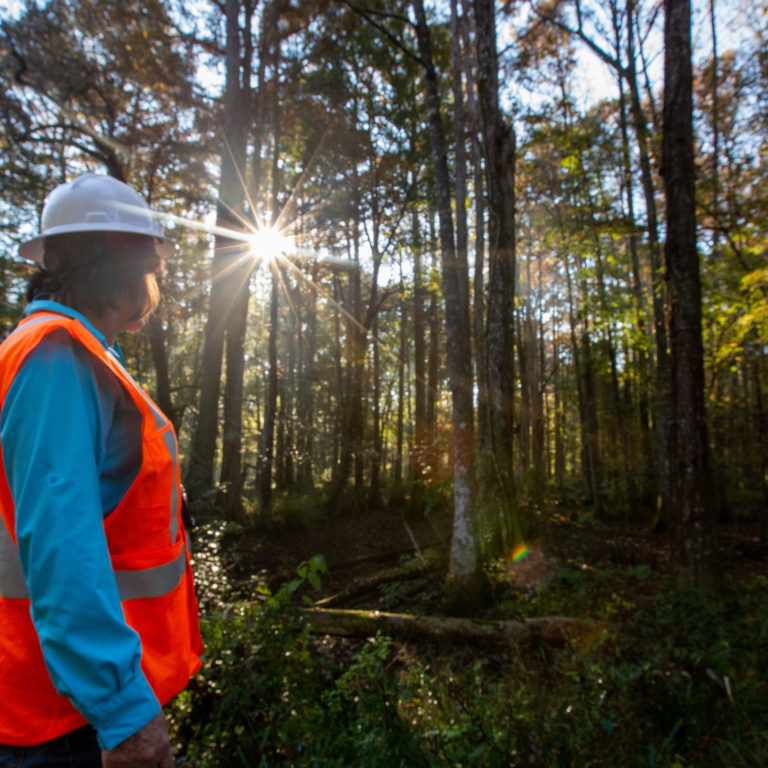-
Drax will be the first company in the world to announce an ambition to become carbon negative by 2030 when CEO Will Gardiner speaks at COP 25 in Madrid on Tuesday December 10, 2019
-
Using bioenergy with carbon capture and storage (BECCS) Drax will remove more carbon dioxide from the atmosphere than it produces, creating a negative carbon footprint for the company.
-
Drax’s ambition is only achievable with an effective negative emissions policy and investment framework. The UK Government is developing those as part of its global leadership in addressing the climate crisis.
Leading British energy company, Drax Group Plc, will be the first company in the world to announce an ambition to become carbon negative when CEO Will Gardiner speaks at a Powering Past Coal Alliance event at COP 25 in Madrid, today (Tuesday December 10, 2019).
He will say that Drax has an ambition to become carbon negative by 2030, but doing so will depend on an effective negative emissions policy and investment framework for new technologies like bioenergy with carbon capture and storage (BECCS).
Being carbon negative means that Drax will be removing more carbon dioxide from the atmosphere than it produces throughout its operations – creating a negative carbon footprint for the company within a decade.
Drax is already running a successful BECCS pilot at its power station capturing a tonne of carbon dioxide every day. The Intergovernmental Panel on Climate Change and the UK Committee on Climate Change agree that BECCS is critical to achieving net-zero carbon emissions by 2050.
Sustainable biomass is an important part of the UK’s long-term energy mix. Combining this renewable fuel with carbon capture and storage technology on Drax’s biomass generating units at its power station in North Yorkshire, England, means the Group’s operations could capture 16 million tonnes of CO2 a year or more – a significant proportion of the UK’s target.
Drax CEO Will Gardiner said:
“Drax’s ambition is to be carbon negative by 2030. Having pioneered the use of sustainable biomass, Drax now produces 12% of the UK’s renewable electricity. With the right negative emissions policy, we can do much more, removing millions of tonnes of emissions from the atmosphere each year.
“The UK Government is working on a policy and investment framework to encourage negative emissions technologies, which will enable the UK to be home to the world’s first carbon negative company. This is not just critical to beating the climate crisis, but also to enabling a just transition, protecting jobs and creating new opportunities for clean growth – delivering for the economy as well as for the environment.”
In recent years Drax has undergone a world-leading transformation, becoming Europe’s largest decarbonisation project by converting two-thirds of its coal-fired power station to use sustainable biomass. In the first half of 2019, 94% of the power produced by Drax Power Station in North Yorkshire, England, was renewable – delivering carbon savings of more than 80% compared to when it only used coal.
The engineering skill and expertise at Drax which enabled this unique transformation is now pioneering ground-breaking negative emissions technologies. Earlier this year Drax became the only power generator in the world to have captured carbon dioxide from a 100% biomass feedstock using BECCS technology, through its successful pilot project.
After closing its remaining two coal generating units at Drax Power Station by 2025 and using carbon capture technology on its biomass power generating units, its operations would become carbon negative by 2030.
Will Gardiner will announce Drax’s ambition when he speaks at COP25 in Madrid. Drax is a member of the Powering Past Coal Alliance, an initiative launched by the UK and Canadian governments, which seeks to end the use of unabated coal in power stations around the world by 2030. The Powering Past Coal Alliance wants to accelerate the transition away from unabated coal and Drax is supporting its work to encourage members to scale up their ambitions, and to create more collaboration, helping prospective new members to move forwards in using cleaner energy.
ENDS
Media contacts:
Selina Williams
Drax Group Media Manager
E: [email protected]
T: +44 (0)7912 230393
Ali Lewis
Drax Group Head of Media & PR
E: [email protected]
T: +44 (0)7712 670888
Notes to Editors
Drax CEO Will Gardiner will speak at the Powering Past Coal Alliance event at COP 25 in Madrid, on Tuesday December 10, 2019 at 5.50pm local time (4.50pm GMT). His speech will be published on the Drax website afterwards.
Achieving Drax’s ambition to be a carbon negative company by 2030 is dependent upon it:
- Closing its two remaining coal generating units at Drax Power Station, which it plans to do by 2025 – consistent with the UK government’s objectives
- Having at least two biomass generating units operating with BECCS technology running at 90% availability, capturing and storing eight million tonnes of CO2 a year
- This would more than compensate for Drax’s projected CO2 emissions from its other operations in 2030.
Drax has included all harmful greenhouse gases as defined by the Kyoto Protocol in its calculations.
The Greenhouse Gas Protocol Corporate Standard classifies a company’s greenhouse gas emissions into three ‘scopes’. Scope 1 emissions are direct emissions from owned or controlled sources. Scope 2 emissions are indirect emissions from the generation of purchased energy. Scope 3 emissions are all indirect emissions (not included in scope 2) that occur in the value chain of the reporting company, including both upstream and downstream.
Scope 3 emissions are not included in Drax’s calculations for achieving its carbon negative status in 2030. This is in line with accepted practice globally, based on the Greenhouse Gas Protocol. However, had its sustainable biomass supply chain emissions been included, Drax would still be a carbon negative company in 2030.
Drax has signed up to the UN Global Compact Science Based targets which provides companies with a clearly defined pathway to future-proof growth by specifying how much and how quickly they need to reduce their greenhouse gas emissions. The target is aligned to the pathway which limits global temperature rise to 1.5°C below pre-industrial levels.
The UK government is currently developing an effective negative emissions policy and investment framework. Drax believes this should include:
- A regulated asset base “RAB” based model to support transport and storage;
- Contract for Difference to support BECCS and other negative emissions technologies.
- Support for multiple carbon capture clusters in the UK, including Zero Carbon Humber
In September 2019 the UK Government published a report it commissioned from Vivid Economics, an economic consultancy, considering how the UK could deliver up to 130 million tonnes of negative emissions required to achieve net zero by 2050. The report recommended a suite of short and long-term government actions including:
- Strengthening existing payment schemes for afforestation and habitation restoration
- Introducing an obligation on fossil fuel suppliers to fund negative emissions technologies
- Amending the existing Contracts for Difference support scheme in the electricity sector for BECCS and Direct Air Capture projects.
Drax announced it had captured the first carbon dioxide from its pioneering BECCS pilot project earlier this year.
The UK Committee on Climate Change’s ‘Net Zero’ report states that BECCS could generate up to 173 TWh of electricity by 2050, capturing up to 51 million tonnes of CO2 – around half of the remaining carbon in the economy that the UK will need to capture to become ‘net zero’.
Drax launched the Zero Carbon Humber campaign in September with partners Equinor and National Grid Ventures, aimed at creating the world’s first zero carbon industrial cluster in the region.
Drax could use BECCS across all four of its biomass generating units, capturing 16 million tonnes of CO2 a year. As the world’s first negative emissions power station it could be the anchor for a net zero industrial cluster in the Humber region – protecting thousands of jobs, delivering clean growth and new export opportunities for the region.
All major UK political parties have now committed to develop at least one industrial carbon capture storage cluster.
Drax signed up to the Powering Past Coal Alliance in April 2018.
Photo caption/main image: Wood pellet storage domes at Drax Power Station, July 2019. Click to view/download.
About Drax
Drax Group’s purpose is to enable a zero carbon, lower cost energy future. Its 2,900-strong employees operate across three principal areas of activity – electricity generation, electricity sales to business customers and compressed wood pellet production.
Power generation:
Drax owns and operates a portfolio of flexible, low carbon and renewable electricity generation assets across Britain. The assets include the UK’s largest power station, based at Selby, North Yorkshire, which supplies five percent of the country’s electricity needs.
Having converted two thirds of Drax Power Station to use sustainable biomass instead of coal it has become the UK’s biggest renewable power generator and the largest decarbonisation project in Europe.
Its pumped storage, hydro and energy from waste assets in Scotland include Cruachan Power Station – a flexible pumped storage facility within the hollowed-out mountain Ben Cruachan. It also owns and operates four gas power stations in England.
Customers:
Drax owns two B2B energy supply businesses:
- Haven Power, based in Ipswich, supplies electricity and energy services to large Industrial and Commercial sector businesses.
- Opus Energy, based in Oxford, Northampton and Cardiff, provides electricity, energy services and gas to small and medium sized (SME) businesses.
Pellet production:
Drax owns and operates three pellet mills in the US South which manufacture compressed wood pellets (biomass) produced from sustainably managed working forests. These pellet mills supply around 20% of the biomass used by Drax Power Station in North Yorkshire to generate flexible, renewable power for the UK’s homes and businesses.
For more information visit www.drax.com/us




